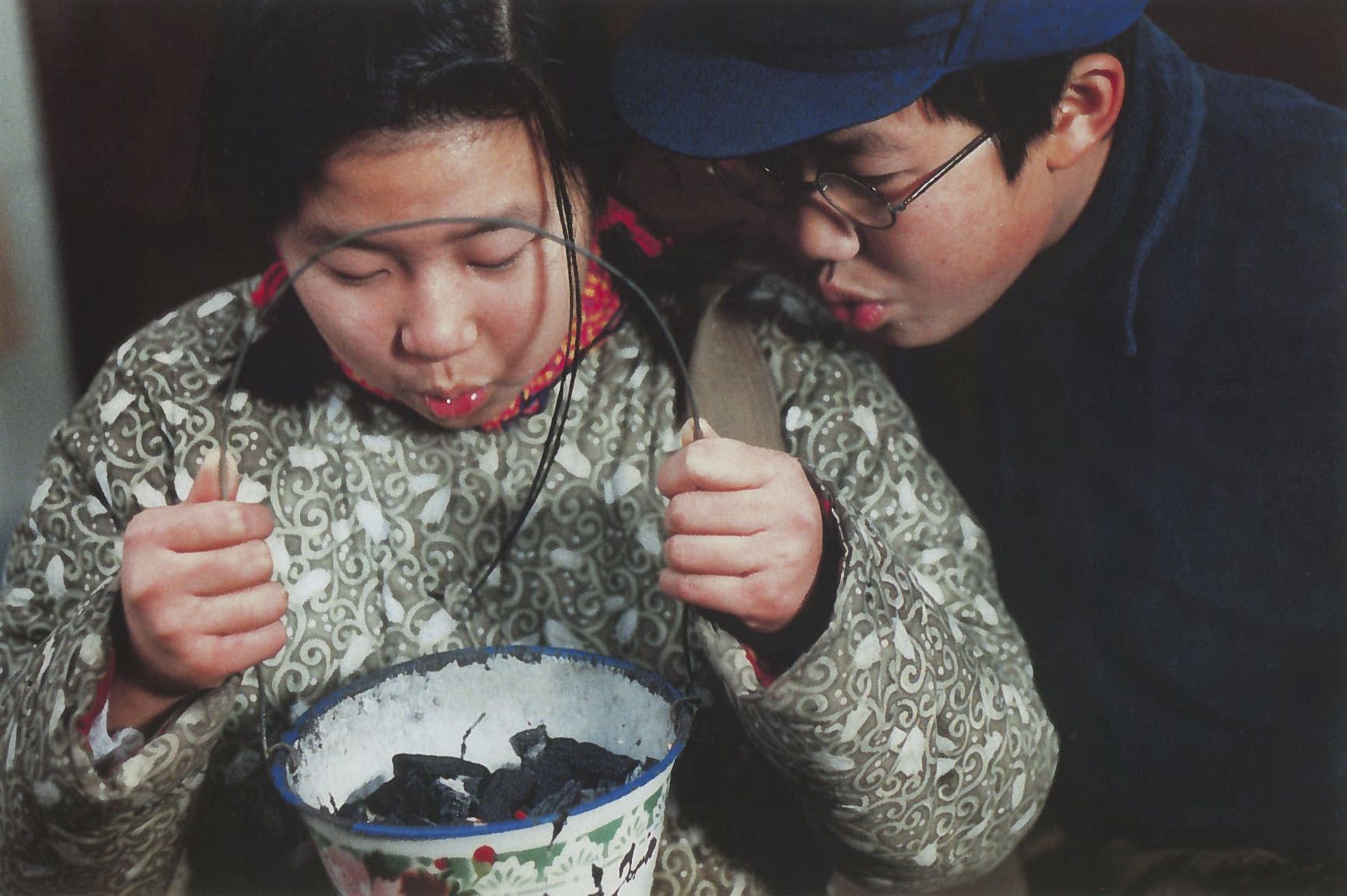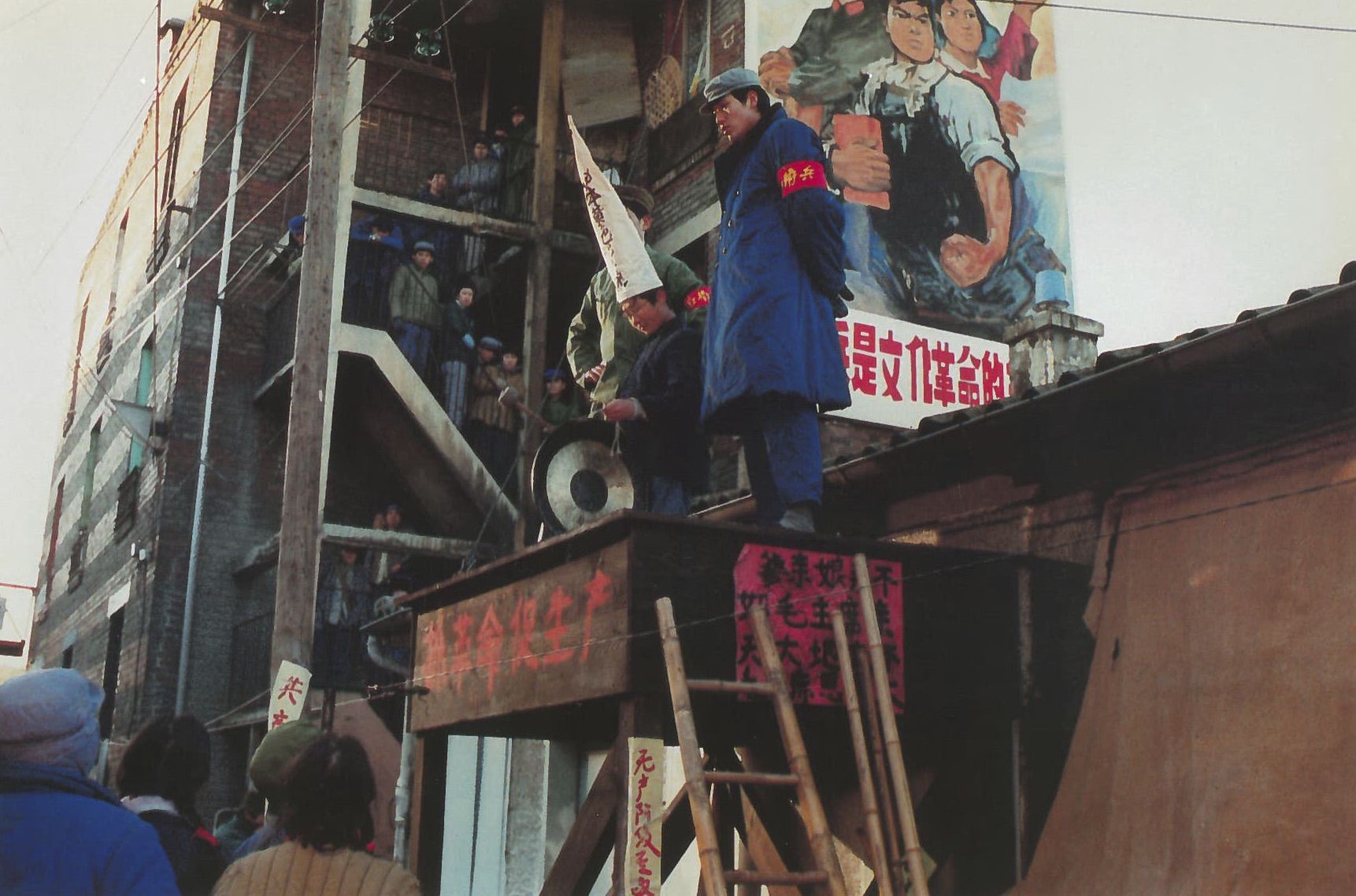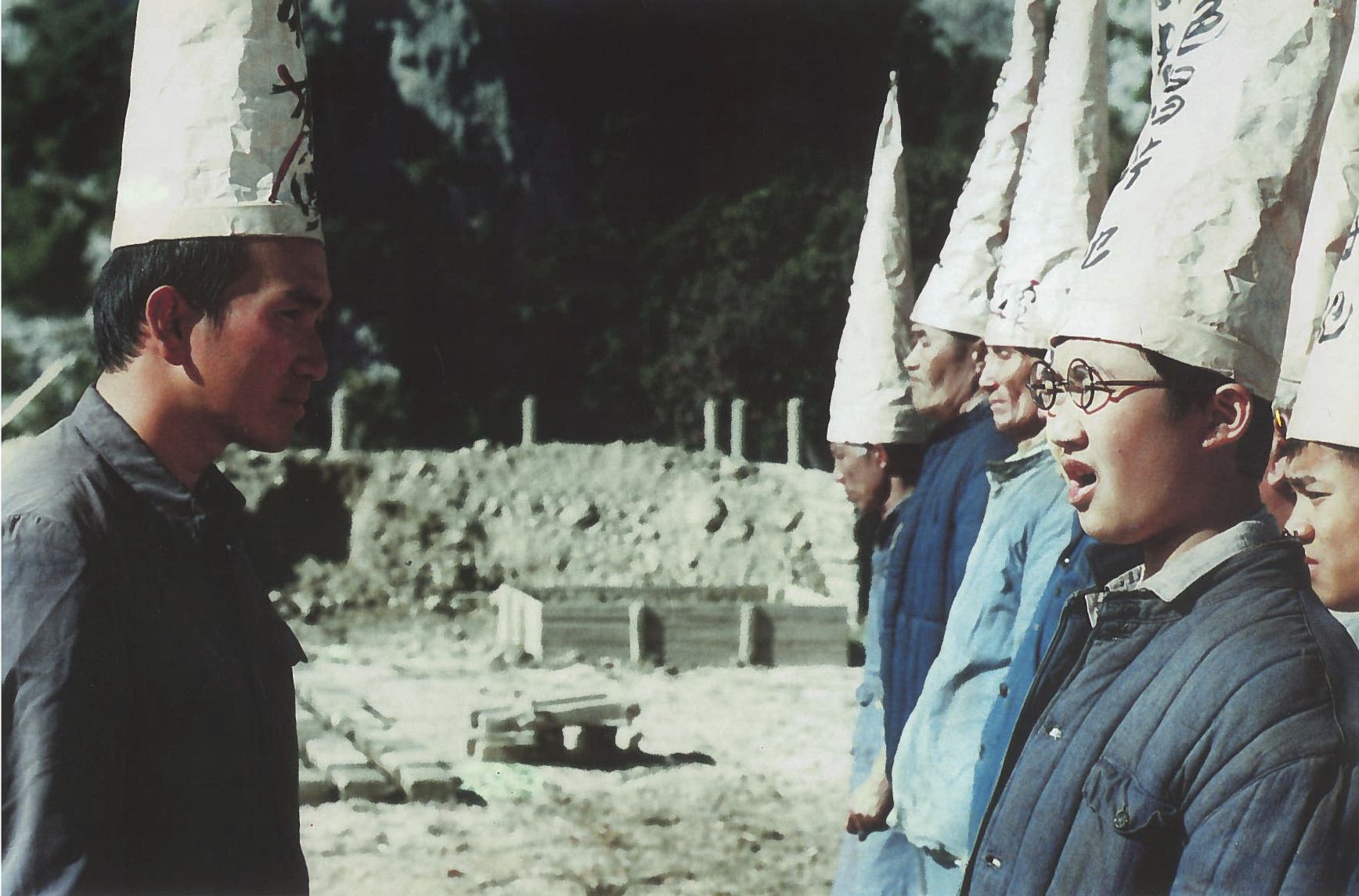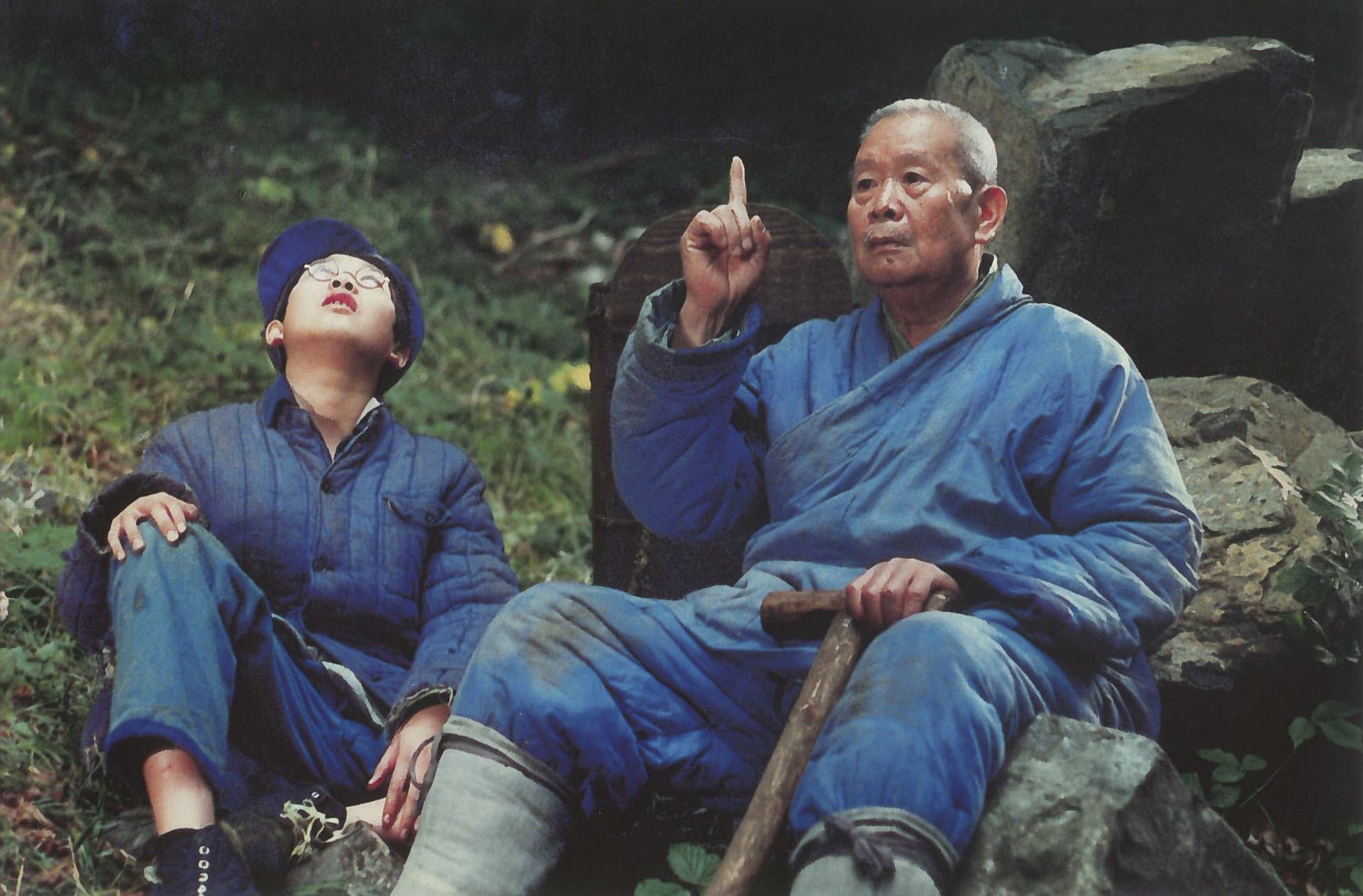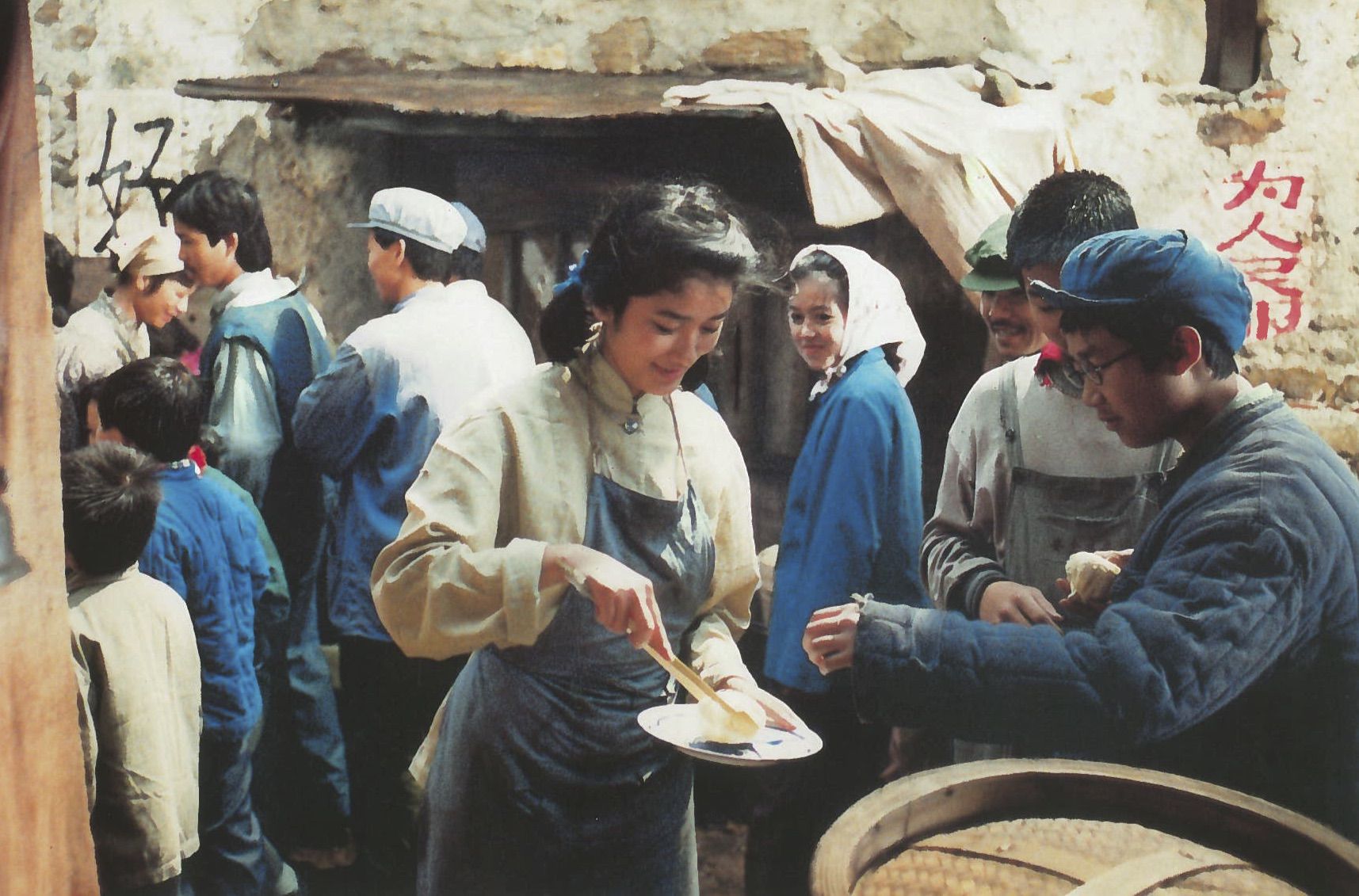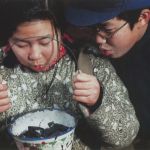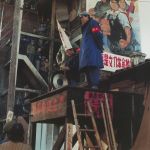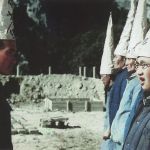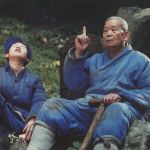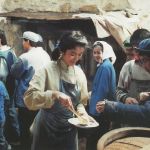1966.
In a small Chinese town, at the start of the Cultural Revolution, a new enemy of the people is unmasked.
Criminal's name: Tian Ben
Nickname: Little Four-eyes
Age: 13
Crime: Insulting the Party
The instrument of the crime : An old record "Oh, my love, you and I form a single heart..."
Such a crime had to be punished and so the child is sent to a labour re-education camp in the Mountains of Eternal Life, a real den of thieves, filled with major criminals like himself where no one even thinks about claiming to be innocent. Each prisoner wears his crime on his head, inscribed on the ridiculous conical paper hats that they have to wear every day. Little Four-eyes, panicking, tries to escape but fails. From that point on, he moves closer to the two people who have been able to conserve their identity amid this collective resignation. The first, a fifteen-year-old boy, a pickpocket, is fuelled by a lust for life that is as strong as his fingers are nimble. The second, an old deaf and dumb Taoist monk, always remains isolated on a rock, surrounded by wild pigeons. He wears a shoe only on one foot. The other is bare: he refused to recover one of his boots that the camp commander threw into the fire one day as a challenge. One night, a group of lost acrobats unsettles their routine by mistakenly putting on a show for them that was destined for the peasants in the neighbouring village. There are dancers squirming before them, before these men who have been without women for so long, but above all there is Peking duck… flying above their starving heads at the end of a slender rod. The one most shaken by this is the Artist; the day after the show, swept up by desperate hate, he puts a big nail on the threshold of the kitchen, waiting for someone to step on it. Little Four-eyes is the victim. The wound becomes infected through lack of medical care; the others panic, thinking that he has the plague. They throw him out of the huts, leaving him to his fate, but the monk, touched by this child whom he loves more than anyone would think, carries him off to a cave where he tends to him with forest plants. Little Four-eyes escapes death; even so, the grim reaper takes his friend the pickpocket when they are lucky enough to be chosen to go to the nearby town for food. The little thief, who has gone without food for so long, eats so much that he dies of indigestion that very night. The monk dies in turn because of some stupid decision: the camp commander has ordered that all the pigeons be killed. It's a massacre; the last pigeon, seeking refuge near the monk on his rock, is cruelly put to death before his eyes. That night, desperately alone, the monk relates the myth of a sacrificed bird in shadow play and then slits his throat. Little Four-eyes, who saved the monk the previous day, is stunned to hear the old deaf mute speak the next morning, reproaching him for not letting him die. He finally helps his last friend to end his life. Then he runs off, with a shoe on one foot and the other foot bare, like the monk…
REVUE DE PRESSE
Note d'intention de Dai SIjie concernant Chine Ma douleur-662
NIU PENG, the film’s title, is the pronunciation of two Chinese ideograms that literally mean "ox yard". During the Cultural […]
Note d'intention de Dai SIjie concernant Chine Ma douleur-662
NIU PENG, the film's title, is the pronunciation of two Chinese ideograms that literally mean "ox yard".
During the Cultural Revolution this expression designated a re-education centre since, at the time, the enemies of the people were deemed to be "spirits with the head of oxen". For a Chinese person, these are the most evil demons existing in the world.
Through the lives of a few of these spirits, I have tried to show a minute part of a huge iceberg: the Cultural Revolution, in its tragic-comic dimension, without judging it but simply by approaching it through my intense compassion for the characters that I have created.
During the Cultural Revolution this expression designated a re-education centre since, at the time, the enemies of the people were deemed to be "spirits with the head of oxen". For a Chinese person, these are the most evil demons existing in the world.
Through the lives of a few of these spirits, I have tried to show a minute part of a huge iceberg: the Cultural Revolution, in its tragic-comic dimension, without judging it but simply by approaching it through my intense compassion for the characters that I have created.




